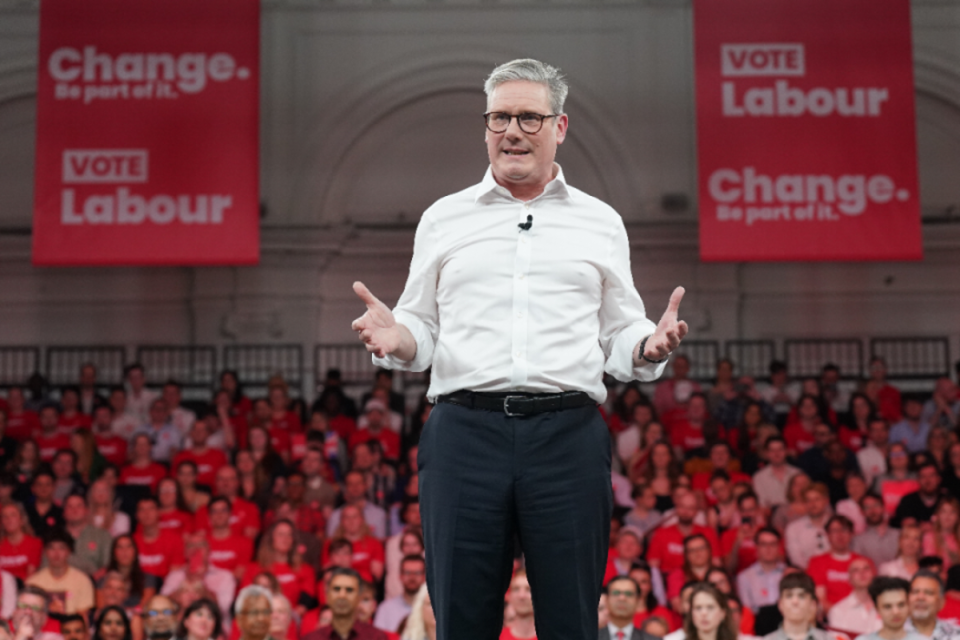Banks, homebuilders and retailers in focus as London markets brace for Labour election victory

The UK general election is in focus for London markets this week as investors brace for an expected Labour landslide that could move share prices across the FTSE 100.
Polls widely expect Thursday’s vote to see Labour achieve a sizeable majority and oust Rishi Sunak as Prime Minister.
Analysts at AJ Bell said history showed the UK stock market “is by no means frightened of a change in government and may even welcome it”, with the FTSE All-Share index on average posting double-digit percentage gains in the first year after an election which sees a prime minister replaced.
“Labour governments can also point to healthy average stock market gains during the terms of their five Prime Ministers during the 42-year era of the FTSE All-Share,” they added. “The size of a government’s majority seems to be matter of indifference to stock market investors,” they said, however.
City analysts have identified banks, homebuilders and retailers as among the most exposed sectors of the stock market to a Labour victory.
The party is branding itself as “pro-growth”, pledging to deliver 1.5m new homes over the next parliament and looking to level the playing field between high street shops and online retailers.
“A decisive Labour victory may help restore more confidence in the UK economy, as a party with a solid majority following on from the instability provoked by successive short-lived Conservative administrations,” said Susannah Streeter, head of money and markets at Hargreaves Lansdown.
She named Natwest and Lloyds as banking stocks to watch, alongside homebuilders Taylor Wimpey and Vistry and retail giants like Sainsbury’s and Primark owner Associated British Foods.
The French election is also on investors’ radar this week, with the first round of voting for the National Assembly taking place on Sunday before run-offs a week later.
The country’s markets have already seen volatility after Macron’s gamble to call a snap election, with Monday’s initial results set to trigger another reaction depending on the level of support for Marine Le Pen’s far-right National Rally party.
Elsewhere on the corporate calendar, Sainsbury’s is due to update the market on its first-quarter trading on Tuesday.
It is expected to report a 4.7 per cent increase in grocery sales, according to HSBC analysts. This would represent a slight slowdown on the final quarter of the previous financial period, although this is predominantly linked to the significant easing of food and drink inflation.
On Friday, US payroll data is expected to show a roughly 190,000 increase in June, down from a 272,000 gain in May. This reading would mark another welcome sign for the Federal Reserve that inflation is slowing and bolster the case for an interest rate cut.

 Yahoo Finance
Yahoo Finance 